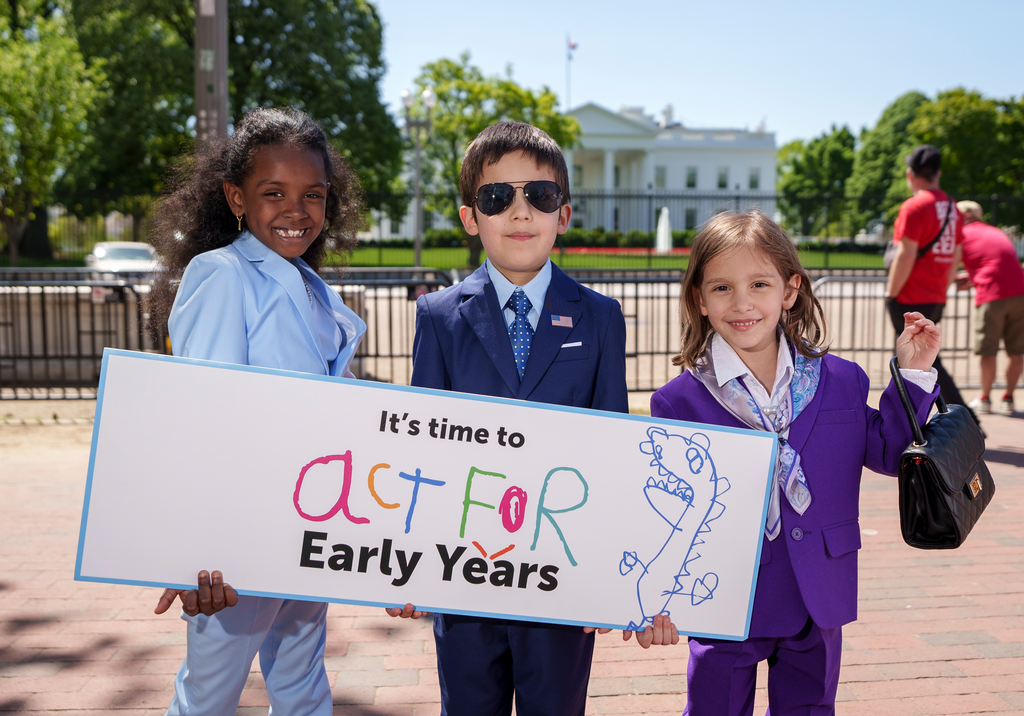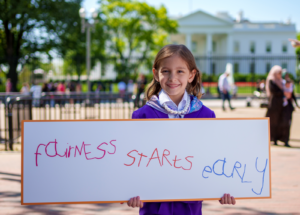Mini President Biden demands world leaders Act For Early Years

A delegation of mini US leaders arrived in Washington, DC, to deliver a big message to world leaders: “Stop ignoring us and Act For Early Years.”
Standing outside the White House, mini President Joe Biden (played by young child Nico Parks) demanded urgent investment in childcare and pre-primary education. He was flanked by mini Vice President Kamala Harris (Retisha West) and Mini Treasury Secretary Janet Yellen (Mirabelle Jurkiewicz).
As world leaders gathered for this week’s World Bank Spring Meetings, he said: “We want the grown-ups to give all children a better future and make sure we’re all really, really happy. It’s not fair that so many little people are ignored.”
The rallying cry is part of the Act For Early Years campaign, launched by Theirworld. It is calling on international leaders to commit $1 billion in new funding to children from birth to age five, when 90% of the brain develops.
SIGN THE PETITION
Theirworld President Justin van Fleet said: “These children are telling those in power that it’s time to Act For Early Years. Dressed as world leaders with the power to bring about change, they are imagining a future where every child, no matter where they are born, is given the best start in life.
“We are calling on governments to listen to these children and invest in the crucial window of opportunity between the ages of zero and five, when the brain develops fastest, and potential is at its greatest.”

A new Theirworld report reveals that – despite record aid spending on pre-primary education – millions of the world’s poorest children are still missing out on crucial support. That’s due to a chronic lack of funding by donor countries.
Analysis by the University of Cambridge for Theirworld shows that global aid to pre-primary education increased by 40% between 2021 and 2022 – reaching $282million, the highest since records began in 2002.
But this was driven largely by spending from a single donor – the World Bank. It invested $181million in pre-primary education in 2022, almost two-thirds of total aid to pre-primary education.
READ THE REPORT
World leaders set a target in 2015 that every child should have access to quality early childhood development, care and pre-primary education by 2030. But nine years on the target is off track and there is no recognised plan in place to achieve it.
More than half of the world’s children – 350 million – do not have access to the childcare they need, according to the World Bank. About half of pre-primary aged children are not enrolled in any form of early education.
The United States is among five of the 37 democracies in the Organization for Economic Cooperation and Development (OECD) countries that spends the least on early education and childcare.
Just 0.3% of its gross domestic product goes on early childhood services, a similar level to Turkey, Costa Rica, Ireland and Cyprus. Spending is highest in Iceland (1.7%) followed by Sweden (1.6%), Norway (1.4%), France (1.3%), and in Finland (1.1%).
